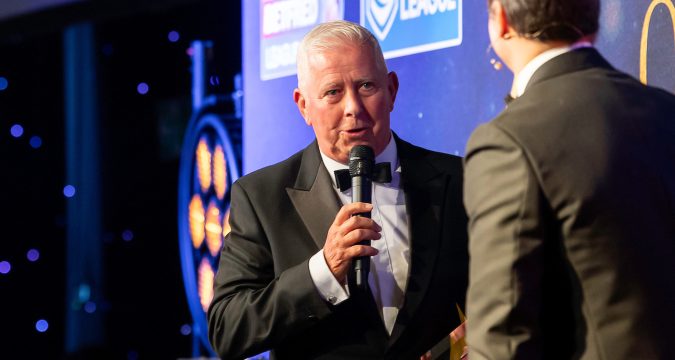 PHIL HODGSON talks to Trevor Hunt as he prepares to pass on a key role in the community game.
IT’S very doubtful that Trevor Hunt’s links with – and, more importantly, huge contribution to the health of - the National Conference League will come to a complete end at the close of this month.
Shortly before Christmas, he announced he is ste
PHIL HODGSON talks to Trevor Hunt as he prepares to pass on a key role in the community game.
IT’S very doubtful that Trevor Hunt’s links with – and, more importantly, huge contribution to the health of - the National Conference League will come to a complete end at the close of this month.
Shortly before Christmas, he announced he is ste Trevor Hunt reflects on 18 years as chair of National Conference League
 PHIL HODGSON talks to Trevor Hunt as he prepares to pass on a key role in the community game.
IT’S very doubtful that Trevor Hunt’s links with – and, more importantly, huge contribution to the health of - the National Conference League will come to a complete end at the close of this month.
Shortly before Christmas, he announced he is ste
PHIL HODGSON talks to Trevor Hunt as he prepares to pass on a key role in the community game.
IT’S very doubtful that Trevor Hunt’s links with – and, more importantly, huge contribution to the health of - the National Conference League will come to a complete end at the close of this month.
Shortly before Christmas, he announced he is ste 